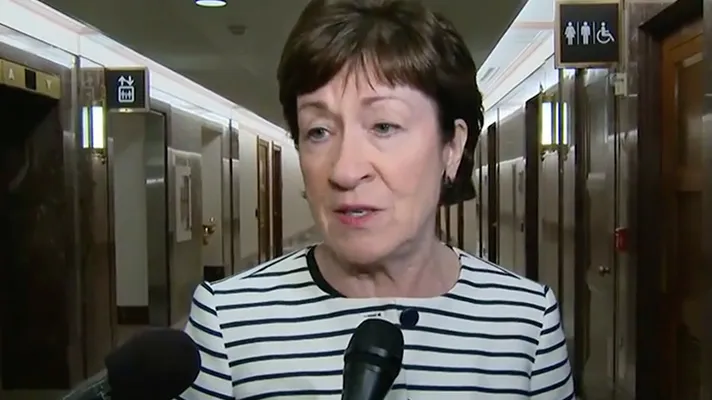
Sen. Susan Collins of Maine has become the third Republican to give a definitive "no" to voting for the Graham-Cassidy last-ditch effort to repeal and replace much of the Affordable Care Act.
Collins' decision likely dooms the bill, as she joins two other Republican Senators in opposition and the GOP can afford to lose only two votes. Arizona Sen. John McCain and Sen. Paul Rand of Kentucky have also publicly come out against the bill.
[Also: Healthcare would lost 580,000 jobs under Graham-Cassidy, S&P says]
Collins reportedly told the media she hopes to turn the conversation back to a bipartisan solution being crafted by Sens. Lamar Alexander and Patty Murray that would aim to stabilize the insurance market.
Senate Majority Whip John Cornyn of Texas said Republicans would meet at noon today to decide a course of action for the bill, according to Politico.
[Also: Support for single payer climbs as medical groups denounce Graham-Cassidy bill]
Last week, Collins indicated she was leaning towards opposition but would await the preliminary analysis of the bill by the Congressional Budget Office.
The CBO released its findings Monday night.
[Also: Republicans falling short on votes needed to pass Graham-Cassidy]
Millions would lose comprehensive health insurance that covers high-cost medical events, according to the report by the Congressional Budget Office and Joint Committee on Taxation.
While it would be up to states to decide how to implement the legislation that would give block grants to states, the number of insured people would be reduced due to the lower numbers enrolled in Medicaid, in nongroup coverage because of reductions in subsidies and through enrollment in all health insurance because penalties would be repealed.
This would be partially offset by enrollment in new programs established by states, and somewhat higher enrollment in employment-based insurance, the CBO report said.
Spending on Medicaid would be reduced by about $1 trillion between 2017 and 2026 and would cover millions fewer enrollees. The largest impact would be on adults who had coverage under Medicaid expansion.
If states choose to save money by reducing spending to providers and health plans, providers might choose not to accept Medicaid patients because Medicaid is already paid at a lower rate than Medicare.
The legislation would reduce budget deficit spending by at least $133 billion.
States would have to create a new infrastructure and enact legislation to establish a system for nongroup coverage. These steps would be challenging, particularly if the state chooses to simultaneously change insurance market regulations, the report said.
Insurers would also need time to develop plans under the new system. And accomplishing those steps before 2020, when the tax credits available under current law would be eliminated, would be hard, the CBO said.
Without subsidies--and with insurers required to accept enrollees having preexisting health conditions and with premiums varying only by age, geography, and smoking status--premiums would be high, and few people would enroll. Not only would enrollment decline, but the people most likely to remain enrolled would tend to be less healthy.
Insurers would need to raise premiums, creating a death spiral with insurers leaving the market.
Twitter: @SusanJMorse
Email the writer: susan.morse@himssmedia.com